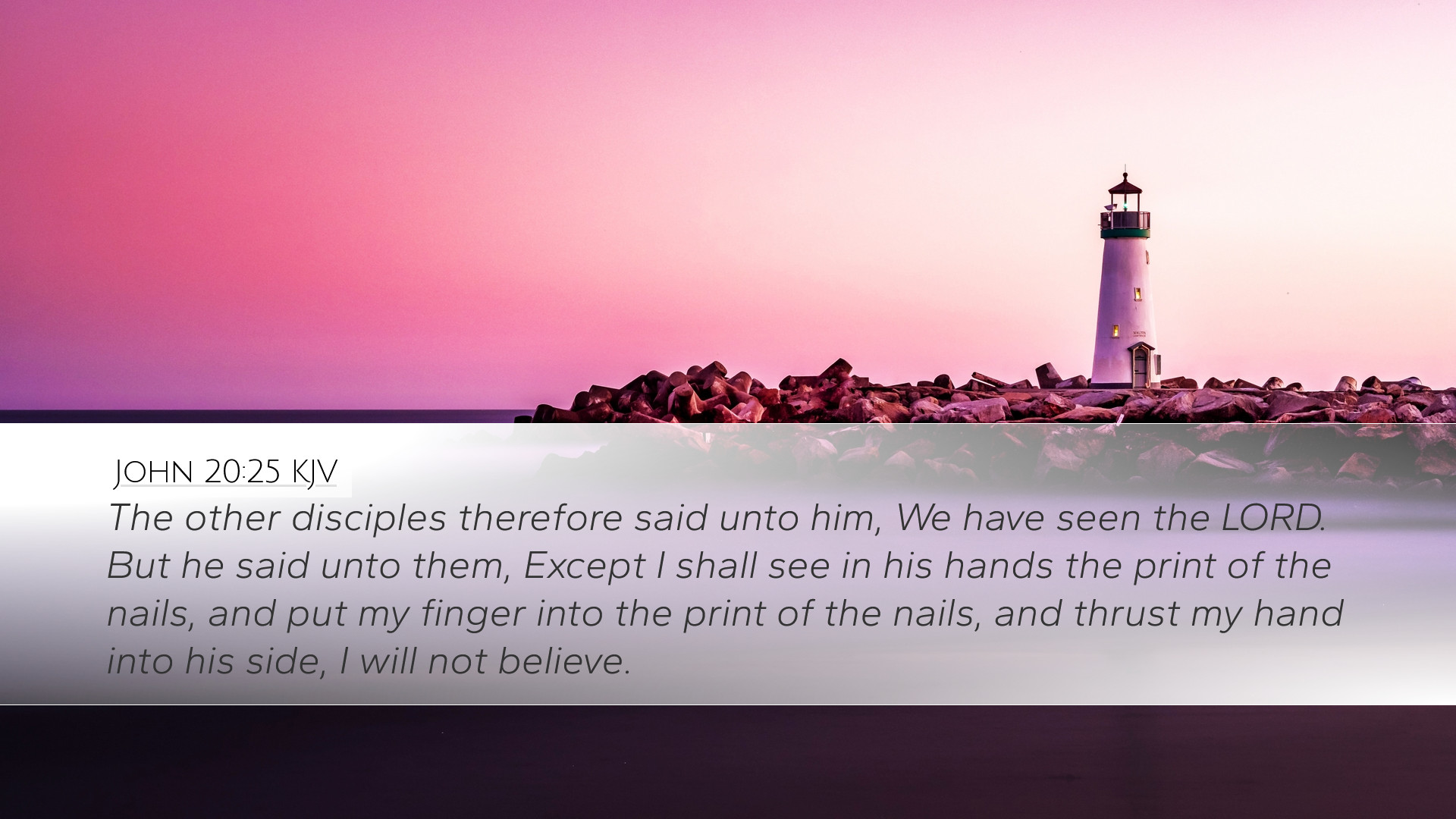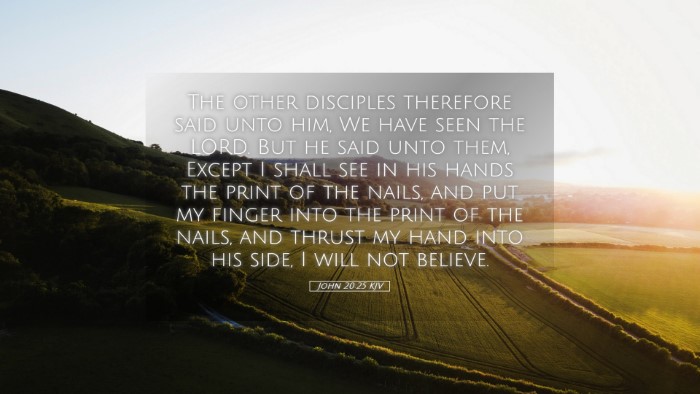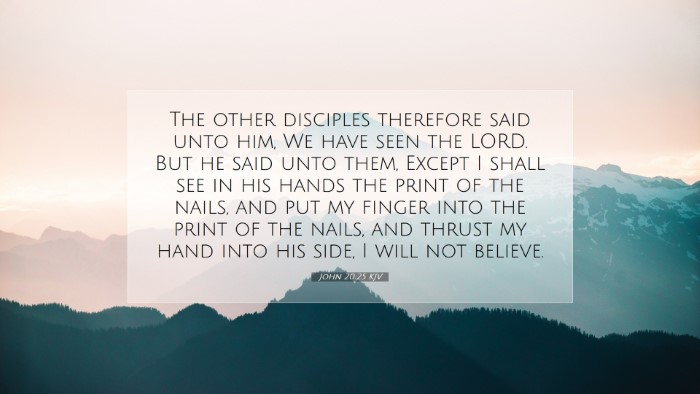Commentary on John 20:25
Verse: John 20:25 - "So the other disciples told him, 'We have seen the Lord!' But he said to them, 'Unless I see the nail marks in his hands and put my finger where the nails were, and put my hand into his side, I will not believe.'"
Introduction
This verse captures a moment of profound emotional weight and theological significance. In the aftermath of the resurrection of Christ, we see the reaction of Thomas, one of the twelve disciples. His skepticism and demand for physical evidence illuminate the struggle between faith and doubt—an experience common to many believers.
The Context of the Verse
After the resurrection, Jesus appears to Mary Magdalene and later to the disciples. When they recount their experiences to Thomas, he responds with doubt. This sets the stage for a crucial exploration of belief, as Thomas's reaction represents a broader human experience of skepticism in the face of miraculous claims.
Insights from Matthew Henry
Matthew Henry emphasizes the significance of doubt in the life of faith. He notes that Thomas's skepticism is not merely an intellectual barrier but a deeper spiritual struggle. Henry remarks:
"The desires of faith may be disappointed, but faith manages to squeeze through."
Here, Henry points out that even the most devoted believers can experience moments of disbelief, which can lead to profound revelations and strengthening of faith when that doubt is ultimately resolved through an encounter with the Divine.
Insights from Albert Barnes
Albert Barnes provides a more analytical approach, dissecting Thomas's character and his reasons for disbelief. He suggests:
"Thomas desired physical proof to combat his doubts, a reflection of the human condition."
Barnes encourages readers to understand that while Thomas’s doubt was palpable, it also paved the way for a deeper encounter with the risen Christ. His insistence on tangible proof represents a gateway to faith when he ultimately recognizes Jesus' presence.
Insights from Adam Clarke
Adam Clarke approaches this narrative with pastoral sensitivity, highlighting the importance of community in faith. He says:
"The testimony of the community of believers played a crucial role in Thomas's journey toward faith."
Clarke stresses that while individual belief is essential, the collective witness of other disciples can prompt personal faith transformations. This illustrates the necessity of fellowship within the body of Christ in addressing doubt and disbelief.
Theological Implications
This verse reveals several theological themes relevant to pastoring and teaching:
- The Nature of Doubt: Doubt is not condemned but rather can serve as a necessary precursor to a stronger faith.
- The Importance of Evidence: While faith transcends evidence, perceptions of the miraculous often require personal, tangible experiences for belief to take root.
- Community and Testimony: The collective experience of believers provides significant support for those struggling with doubt.
- Christ's Compassionate Response: The way Jesus addresses Thomas's doubt demonstrates the Lord's understanding and grace towards those who struggle to believe.
Conclusion
John 20:25 serves not only as a historical account of Thomas's doubt but as a perpetual reminder of the complexities of faith. For pastors and theologians, it presents a framework for discussing doubt in a way that is both honest and constructive. The union of doubt and faith can lead to deeper theological understanding and a more profound relationship with Christ. This narrative encourages believers to embrace their questions and uncertainties, recognizing that within them lies the potential for encounters with the living Christ.


